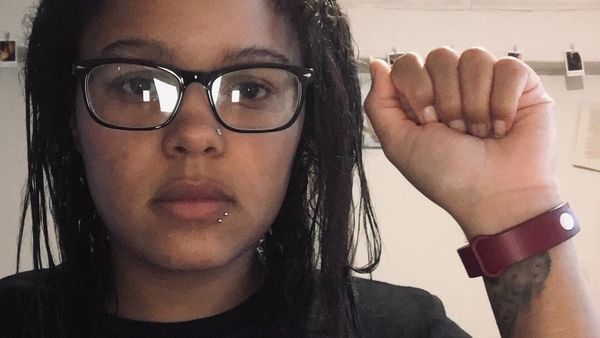I study Cinema, Television and Emerging Media Studies at Morehouse College. I always enjoy watching movies, analyzing themes and archetypes and writing about what I observed. Lately, I’ve been forced to watch reruns. I hate these reruns because they are bothersome to watch. It’s on every channel, everyone on Twitter and Facebook feels compelled to offer their opinion, and only a small group of people want a new episode, a new chapter. I am not speaking about Game of Thrones, but the highly public executions of Black Americans, incidents with characters and plot points so well established we might as well be following a script. It hurts to watch every time I see a Black man, father, brother, uncle, or son executed and feel their pain. It could be me. I hate it because it hurts. I know how the plot for this show plays out. We all do. There are 3 Acts to this story.
On previous episodes of this show, we witnessed a country founded on the conflicting philosophies of universal liberty and chattel slavery. Although it’s many episodes removed from the one we watch today, it still sets the backdrop for what we watch today. Today’s episode is latent with racial tension that lies just below the surface of a peaceful society. Then, the inciting incident, the moment which sparks the action. A Black man (or woman or child) is killed in public at the hands of police. The murder is caught on tape and soon is released to the public. Outrage from the Black community that another one of their own has been slain. The family releases a public statement of some sort, in the midst of their grief. Meanwhile, the local police force will begin to investigate the murder. The police officers will be placed on administrative paid leave. The victim becomes a hashtag in a long list of others who met the same fate. That’s the end of the First Act.
Act Two opens up with the public debacle that follows the shooting. The murdered man (or woman or child) will face their “second death” so to speak. Police and media outlets will soon go out of their way to smear the image of the dead. Some cliches include, “he was no angel”, “she had a criminal history”, “he was a thug”, “she was a monster”. The list goes on and on. By smearing their name, they hope to provide rationalizations for the murder. No doubt unqualified commentators will cite past transgressions as cause to be brutally murdered. Black people will wonder why this keeps happening and pour out their anger, frustration, and sadness, mixed with cries for changes in policing. Black Lives Matter is the chant of solidarity all over the country. This is promptly met with popular politicians condemning the movement as a farce or as racist, while white moderates retort with All Lives Matter or Blue Lives Matter. Black Lives Matter is similar to going to a doctor with a broken foot, some say. You wouldn’t go to that doctor to fix all your bones, just the foot that is broken currently. This falls on deaf ears and people continue to hesitate to condemn the killing as racist. They expose their true feelings and sentiments about Black people. End of Act II.
The beginning of Act III opens with the legal proceedings surrounding the murder. Now at this point in the episode, one of two things happen, 1) The officer or officers are not indicted. Heroes to some and villains to others, it doesn’t matter. It does not matter that a person was killed. They will return to their job. 2) They are indicted, but SPOILER WARNING...they won’t go to jail. We all know this but still act surprised when it happens. Outrage spreads quickly. People mobilize. Protests occur. Some politicians promise a change to the system. Others applaud the decision. The people mobilize and protest. Non-violent protests against the institutionalized racism are held. Sometimes protests become violent with riots and general unrest. Conservative commentators will condemn any violent protest with the phrase, “why would you burn your own community,” while ignoring the fact that most rioters feel that is their only way they can be heard. And eventually, we reach the end of the episode. Justice was not served, but deep down we knew it wouldn’t be. The fervor and passion to protest dies down in most of us and we return to the status quo. But we all know, in the back of our minds, we’re going to have to watch this episode again.
And we do. Roll credits.
Personally, I am tired of having to watch this show over and over again. It is an insult to Black people and makes a charade of the abstract concepts we hold near and dear to our hearts like liberty, justice, and freedom. I’m tired of watching the same plot, with the same script, and the same ending. I’m tired of people justifying brutal public executions. I’m tired of having to explain my pain and have it fall on deaf ears. I’m tired of not having peace. But something about this episode feels different. The plot is similar, but not entirely the same. People across the country are organizing but it feels different. A broad swath of Black people are coming together and taking a stand. Even skeptics are coming to the conclusion that something must be done. And maybe, just maybe, we can all watch a different episode.





















